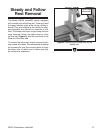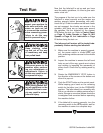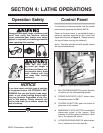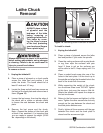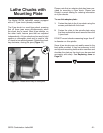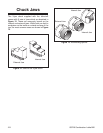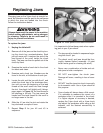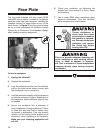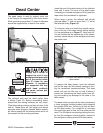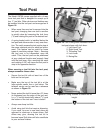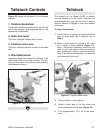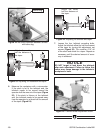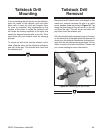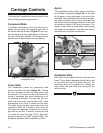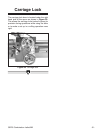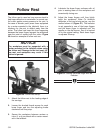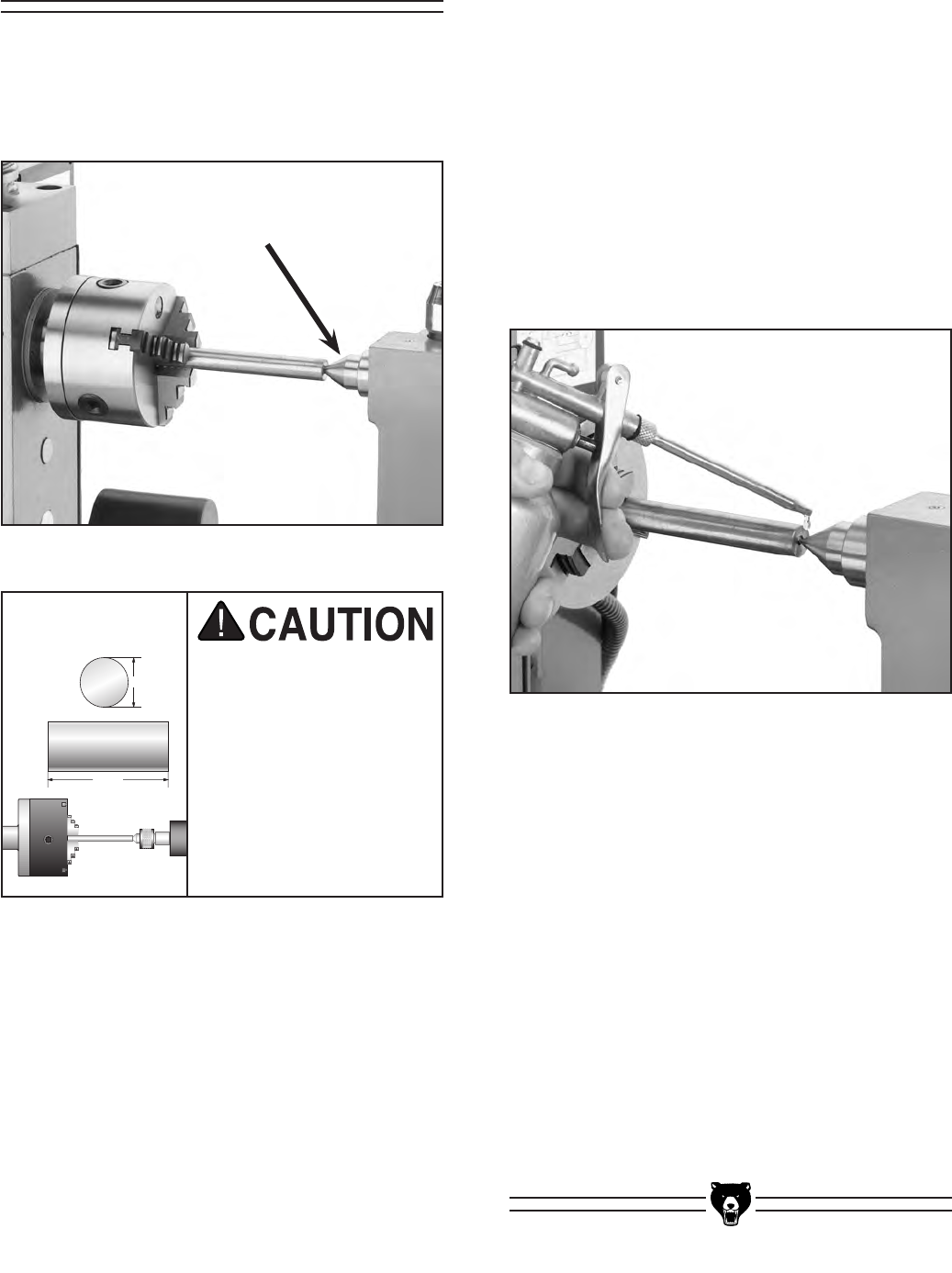
G9729 Combination Lathe/Mill
-25-
Dead Center
The dead center is used to support stock that
is too long to be supported by the chuck alone.
Stock protruding more than 2
1
⁄2 times its diameter
should be supported by a dead or live center.
The tailstock quill and the dead center have
a Morse Taper #3. Before assembling these,
ensure that the mating surfaces are very clean.
Clean the mating surfaces so they are free of dirt
and oil. These parts will last longer and remain
accurate when properly cleaned before assem-
bly.
Morse tapers will not interlock when dirt or oil
are present on the mounting surfaces.
Figure 16. Dead center installed in tailstock.
Figure 17. Oil center hole before seating the
dead center.
Always use a center to
support the end of any
workpiece that protrudes
out of the chuck further
than 2
1
⁄2 times its own
diameter. A workpiece
not supported this way
could bend suddenly
and cause serious per-
sonal
injury.
D
2
1
⁄
2
x D
Insert the end of the dead center into the tailstock
bore until it seats. The force of the dead center
contacting a mounted workpiece will fully seat the
taper when the handwheel is tightened.
When using a center, the tailstock quill should
protrude about
1
⁄2'' and not more than 1
1
⁄4'' out of
the tailstock body (Figure 16).
To
minimize wear and maximize smooth opera-
tion,
oil the tip of the dead center before seating
it in the workpiece as in Figure 17. Heat from fric-
tion
will reduce the life expectancy of the center,
and may cause chatter in the workpiece and spoil
the center hole.
To remove the dead center, back the tailstock
quill all the way into the tailstock casting by turn-
ing
the handwheel counterclockwise. The dead
center will pop out. Be sure to hold it before it
comes out, preventing the dead center from fall-
ing
and causing any damage to the lathe or the
dead center.
The dead center is used with the idea of achieving
a more accurate finished product while keeping
the spindle RPM low. Failure to do this will burn
up the dead center. For a slight bit of accuracy
loss and large gain in time, the live center can be
used. The live center has bearings letting the cen-
ter
and the workpiece rotate together, instead of
the workpiece rotating around the dead center.



